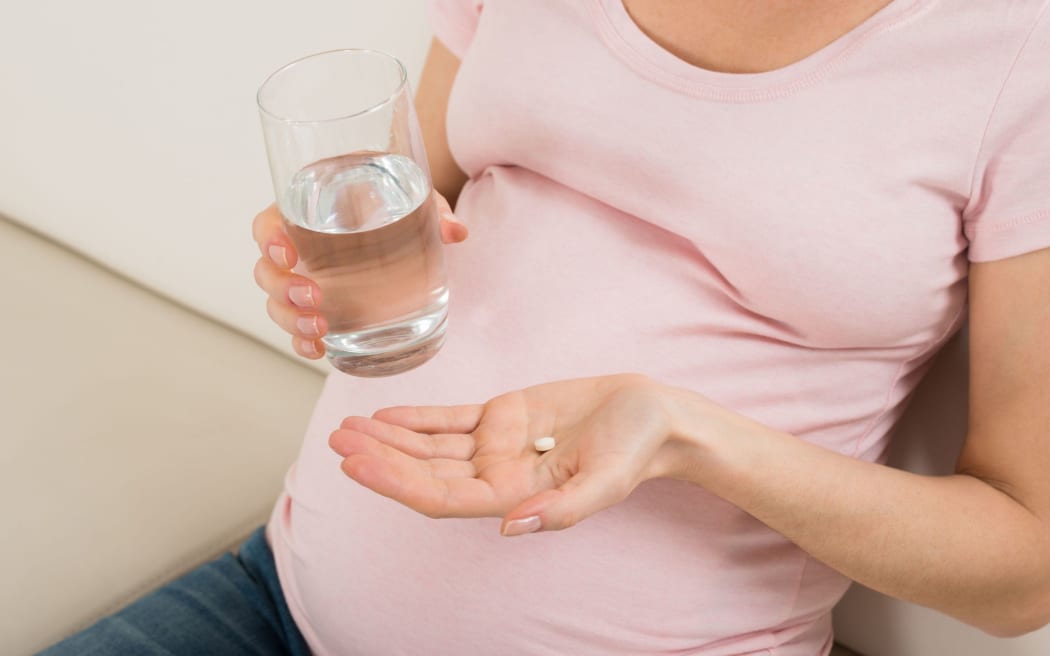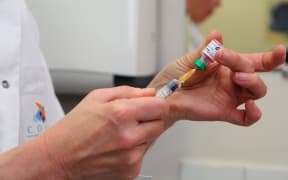Women who take paracetamol while pregnant could reduce their daughter's future fertility, new research suggests.

Photo: 123RF
A review published in Endocrine Connections looked at three separate studies on mice and rats that all reported changed development in the reproductive systems of female offspring, after they were given paracetamol.
The Danish review - written by Dr David Kristensen and colleagues from Copenhagen University Hospital - indicated the changes could harm fertility later in life, because the offspring produced fewer eggs in utero.
The research highlighted the difficulty and importance of researching female fertility, which was much harder to assess than in males, Dr Kristensen told RNZ News.
Read the full study online here.
Dr Kristensen started studying the effects of paracetamol compounds on newborn male rodents seven years ago and found those who had been exposed were likely to be born with malformed genitals. Now there were three studies showing the effects could be worse in female offspring, he said.
"When the animals had been exposed to these active compounds, the ovaries don't develop properly and this results in early onset infertility," he said.
The compounds obstructed the development of the cells, he said.
All female mammals develop all their eggs while in utter, meaning a finite number of eggs.
"There isn't the capacity to get more eggs - this is the reason why they believe they go into an early infertility stage in rodents."
But it was difficult to know how the transferrable the research was on to humans, said Dr Christens.
"The problem is: how do you investigate a new-born girl to see if her ovaries are not developed properly? That's really difficult," he said.
The paracetamol doses given to the rodents were higher than what was taken by pregnant women, because they were more resistant to drugs.
The research suggested that paracetamol was the most frequent drug used for pain relief through human pregnancies.
Dr Kristensen said research showed that many women did not know they were using the compounds throughout their pregnancy.
Further research needed to track use of the drug in humans. Some researchers are currently using material from fetuses and assessing the exposure of paracetamol on fetal material, he said.
It was up to local medical community to decide whether to give recommendations on taking paracetamol or not, he said.
Don't panic, says NZ doctor
But a New Zealand fertility specialist has warned mothers-to-be not to panic, saying more research needed to be carried out and paracetamol was still the safest pain relief.
Fertility Associates medical director and gynecologist Andrew Murray said the research was limited to animal models and women women should not be alarmed.
"There are a number of reasons why I don't think we should be throwing that very helpful medication out, based on this very early research," he said.
He said a first point of criticism was the significantly higher doses given to the rodent compared to what women would ingest during pregnancy.
There also was not enough information about when the "critical period" for development issues after paracetamol exposure would be, he said.
"It's certainly likely that paracetamol use after the first trimester is almost certainly going to be safe in terms of this type of risk."
He said the metabolisms of humans compared with other mammals could be very different and the research might not translate.
Dr Murray also pointed to the small numbers of subjects used.
While the new research needed to be given attention, further research needed to be carried out before paracetamol was disregarded, he said.
But any research on female fertility was valuable, he said.
"It might not effect the absolute fertility of the daughters of these women but it might mean they think about having their children than in their mid-to-late thirties and beyond, which has become a trend," he said.
Medication should only be taken when necessary and at the minimum dose required, Dr Murray said.






